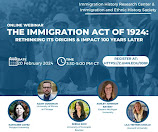Max Planck Summer Academy for Legal History 2024, 1 July – 12 July 2024
The Max Planck Summer Academy for Legal History provides a selected group of highly motivated early-stage research students, usually PhD candidates, with an in-depth introduction to traditional and contemporary approaches and methods in legal history.
The Summer Academy consists of three parts. The first part introduces the international group of PhD students to sources, methodological approaches and theoretical models as well as to controversial research debates on fundamental issues of legal history. The introductory courses are led by members of the Institute and external guest speakers. In the second part, the invited participants present their own projects within the context of the respective year’s special topic. The third part of the Academy offers the opportunity to all participants to further develop their own research by making use of the library and by discussing their projects with the Institute’s experts in the different fields of legal history.
The course will take place at the Max Planck Institute for Legal History and Legal Theory in Frankfurt am Main, Germany (mpilhlt).
This year’s theme: The mediality and materiality of law. ‘Mediality’ and ‘materiality’ are important keywords in historical and cultural studies debates. Legal scholarship has also been devoting a great deal of thought to the material and medial conditions of the production and enforcement of law. Legal history has been pursuing this avenue of research for quite some time, noteworthy examples of which include legal archaeology and the long-standing discussions on orality and writing, for example, in medieval legal history.
As of late, more theoretically grounded considerations have entered this discussion, which ask, for instance, about the interplay between the form and content of legal texts through the advent of new technologies such as printing or digitisation. There is a fair amount of interest in the legal significance of of rituals and how they are performed, the connections between architecture, furnishings, and attire as well as the normative power of images. Some even question whether the history of law would look very different if it had not been written solely based on written sources but, for example, on images and artefacts. The question of the ‘mediality’ and the ‘materiality’ of law thus also touches on fundamental aspects of legalhistorical research such as the concepts of the ‘source’, the ‘archive’ and ultimately even that of law.
Such issues will be the focus of the 2024 Summer Academy.
Eligibility Requirements. Early-stage research students, usually PhD candidates. Working knowledge of English is required, German is not a prerequisite.
Application. All applications must be supported by a CV, a project summary (approx. 10 pages) and a letter of motivation. Please send your applications via e-mail to: summeracademy@lhlt.mpg.de. Submission deadline for applications is 31 January 2024.
Fees. The Academy is generously funded by mpilhlt. There is no participation fee. Accommodation will be provided by the organisers for free. Participants, however, will be responsible for covering their travel expenses (in cases of hardship these can be covered by a limited number of scholarships).
Kontakt. Stefanie Rüther, Forschungskoordinatorin +49 (69) 789 78 - 190 ruether@...
summeracademy@lhlt.mpg.de




















